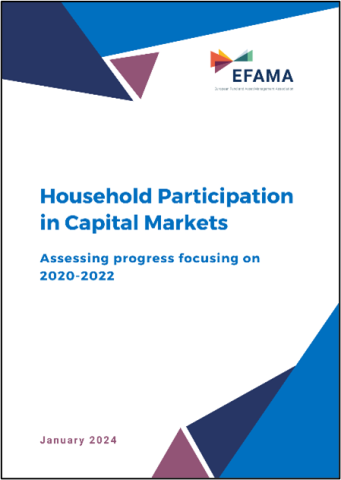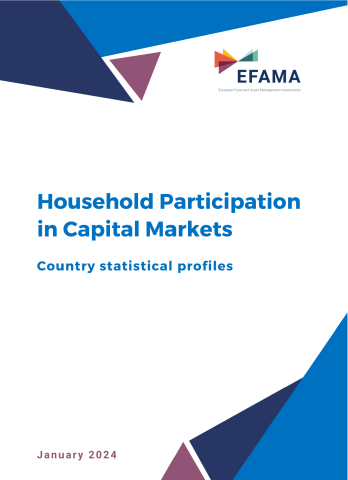Household participation in capital markets
One of the main goals of the CMU is to encourage households to allocate more of their financial wealth in capital market instruments (CMIs) and less in bank deposits. The latest edition of our publication "Household participation in capital markets: Assessing progress focusing on 2020-2022" analyses the progress made in recent years by European households in allocating more of their financial wealth to capital market instruments (pension plans, life insurance, investment funds, debt securities and listed shares) and less in cash and bank deposits. It also includes policy recommendations on improving retail participation in capital markets, including for the Retail Investment Strategy currently under discussion.
Some of the key findings include:
- European households increased their holdings of cash and bank deposits from EUR 10,260 billion in 2015 to EUR 13,944 billion in 2022, or from 36.7% of their financial wealth to 41.1%.
- Households increased their investments in capital markets to EUR 574 billion in 2022, compared to an annual average of EUR 303 billion in 2015-2019. However, the increase in bank deposits remained substantial.
- There remain considerable differences in the way households allocate their savings across Europe. National pension systems, gross national income per capita, the level of financial literacy and investment tax incentives all contribute to this.
- The countries that made the most headway between 2020-2022 are quite different in terms of total population, economic weight, and financial development, which confirms that greater participation in capital markets can be achieved in any country.
The report also makes several policy recommendations:
• Boosting access to, and coverage of, funded occupational and personal pensions by developing national pension tracking systems, implementing auto-enrolment for occupational pension plans, revising the Pan-European Personal Pension Product, and integrating the European Retirement Week into the EU official calendar.
• Keeping access to affordable and quality financial advice for all EU citizens, including within the Retail Investment Strategy.
The latest report and country profiles can be downloaded in the right-hand panel.
You can download the previous version of this report here and the previous country profiles here.



























